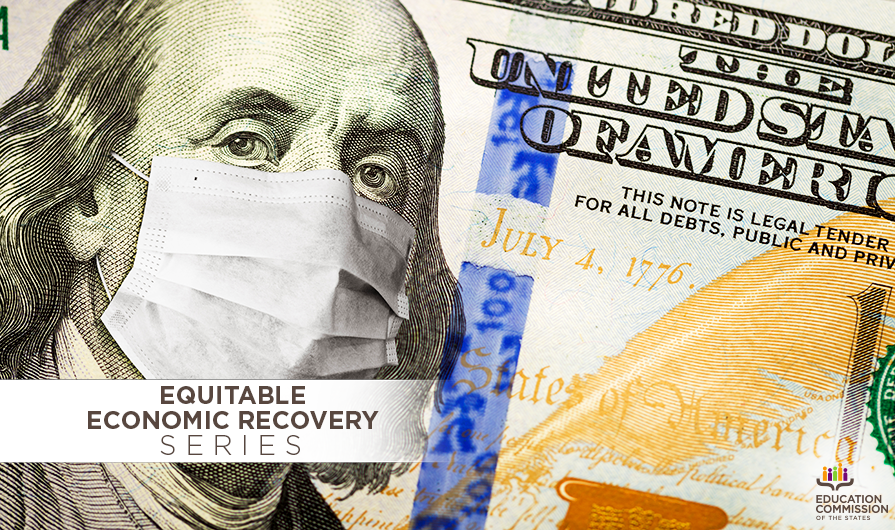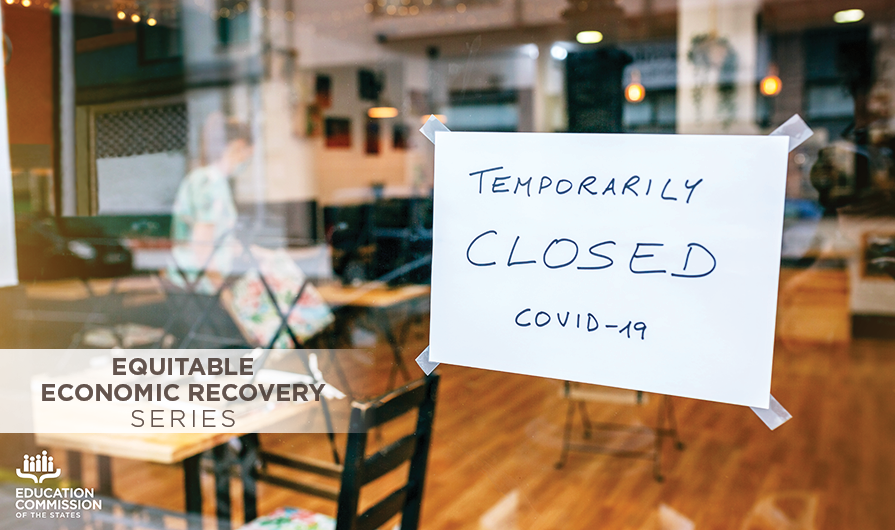State policymakers and leaders can play a critical role in creating an equitable economic recovery that ensures all individuals get the support and resources they need to achieve their education and career goals and advance economically. Recent State of the State addresses demonstrate that state leaders continue to grapple with the ongoing economic impact of the COVID-19 pandemic and its implications for education and the workforce. During their 2021 addresses, governors pledged support and emphasized connections to high-demand occupations and suggested new investments across these areas.
State policymakers, business and civic leaders, and their community partners are tasked with how to create the conditions for an economic recovery that benefits historically disadvantaged and underserved people so that they have opportunities to contribute to a resilient and prosperous future.
Recovery efforts that focus on systemic transformation, fostering community revitalization, and providing people who are impacted most by systemic barriers with career and educational opportunities, as well as the supports they need to succeed, will be key. This includes focused attention on students of color and students from low-income backgrounds and people who are currently unemployed, underemployed and experiencing poverty. Bold action supporting people, regional economies and systems can help state policymakers succeed in driving sustainable economic growth for all.
This is no small feat, so Education Commission of the States and JFF are kicking off this blog series to explore current challenges, considerations and state policies that can support an equitable recovery. Specifically, this series will address the following areas of inquiry and share recent state action:
-
-
- How might state policymakers, business and civic leaders, and their community partners help people rebound and advance and ensure that all workers and learners have the knowledge, tools and experiences needed for career entry and advancement?
- How might state policymakers, business and civic leaders, and their community partners revitalize regional economies by investing in quality jobs and broadening access to them?
- How might state policymakers, business and civic leaders, and their community partners redesign education and workforce development systems by scaling and sustaining what works, spurring innovation, dismantling inequitable and arcane structures, and fostering collective action across systems?
-
The next posts in this series highlight key solutions featured in JFF’s State Policy Road Map for an Equitable Economic Recovery with a focus on getting people back to work, creating new jobs, revitalizing communities and meeting the talent development needs of today’s students, workers and employers. They also include recent legislative trends from ECS’ state education and workforce tracking and highlight which solutions are already taking hold across states. We invite you to follow along and join us for this important discussion.













